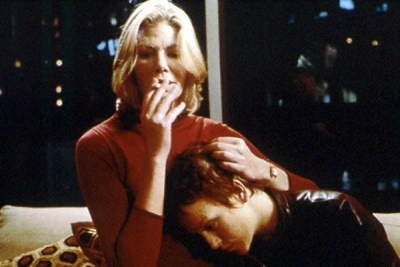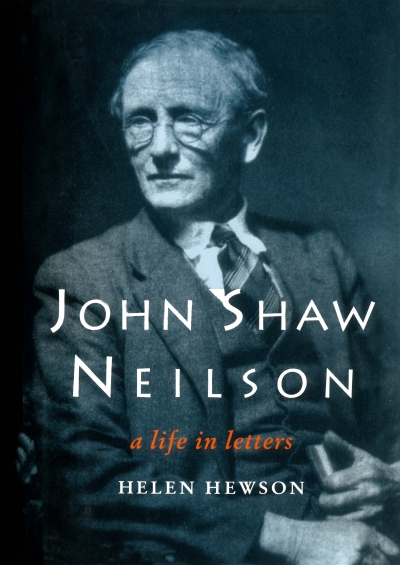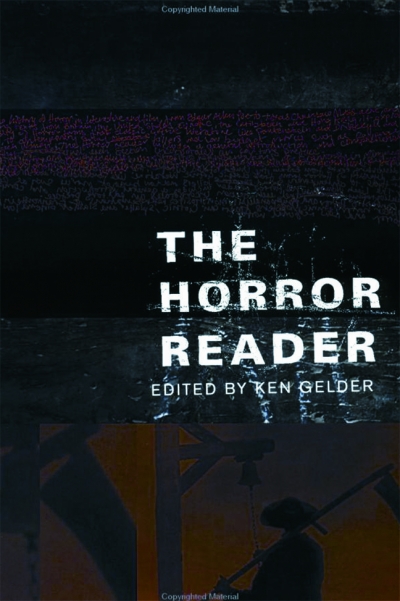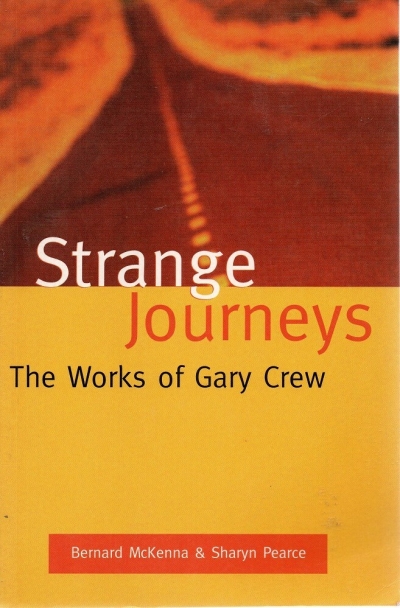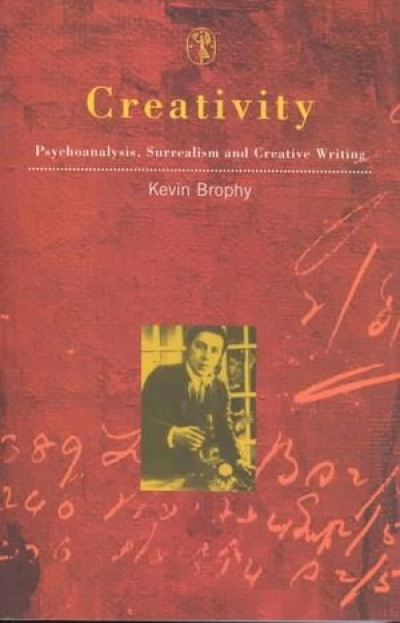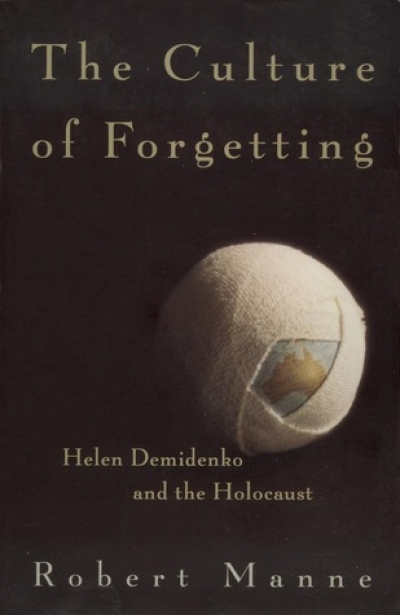Literary Studies
La Trobe University Essay | 'Infidelity: "The Monkey’s Mask" in Poetry and Film' by David McCooey
Movies are often criticised for their lack of fidelity, for not keeping faith with their sources, especially novels, their audience, or their glorious antecedents. Infidelity is also a key plot device, especially of genre films: melodrama, comedy, crime, even the western. We keep going back to the movies partly because they don’t give us what we want. The New York poet Frank O’Hara suggests this in ‘An Image of Leda’, his breathless adaptation of the myth of Leda and the Swan as an allegory for watching films:
... (read more)How good is Shaw Neilson? The question has hung around ever since A.G. Stephens, publishing the poet’s first book, Heart of Spring, in 1919, prefaced it with comparisons to Shakespeare and Blake and declared this unknown to be the ‘first of Australian poets’. The claim provoked competitive jealousies in a possessive, parochial literary world and reviewers responded by insinuating doubts. The question remains: is Neilson the greatest Australian poet? For those who want literature to be a horse race, it is unsatisfactory that there is no declared winner, brandishing medal and loot. Neilson loved horses but he disliked the hold that the sporting mentality had over his fellow Australians – especially men. Yet like most writers he was anxious about his standing and, in his perfectionist’s concern to put his best foot forward, he probably contributed to his readers’ uncertainties. Difficulties with his singularity as a poet were compounded by Neilson’s circumstances, particularly the bad eyesight that made him dependent on others in preparing final versions of his work. That was part of a more general dependency on editors, critics, and supporters who had their own ideas of where they wanted to take him
... (read more)Horror. It’s a word you are forced to utter emphatically, almost to expel. On the page, it seems to contain a form of typographical echo – it looks as if it is repeating itself. The term has tactile, physical associations; it once meant roughness or ruggedness, and it also describes a shuddering or a shivering movement. (There’s a wonderful word, horripilation, a synonym for the phenomenon also known as gooseflesh.)
Corporeal sensations, outward and internal – the frisson of creeping flesh, the visceral clutch or contraction of the bowels. Horror is the response and that which causes it, the emotion of disgust or repugnance which provokes a shudder or a shiver. Instinctive, immediate, something that can’t be moderated or regulated. But there is also a dynamic of attraction and repulsion in and around horror: it is both what you cannot bear to contemplate and cannot bear to look away from.
... (read more)Strange Journeys: The works of Gary Crew by Bernard McKenna and Sharyn Pearce
All too few books about Australian children’s writers and writing manage to find a publisher. They’re unlikely to sell enough copies, is the standard explanation. All the more reason, therefore, to welcome an even greater rarity – a book which focuses on the work of a single writer. Even if Gary Crew might not necessarily be everyone’s first choice as the subject of such a volume, all those interested in Australian children’s literature will hope that Strange Journeys meets with a success which will encourage the publication of similar analyses of other contemporary writers’ work.
... (read more)Author! Author!: Tales of Australian Literary Life edited by Chris Wallace-Crabbe
‘Anecdotes’ meant originally ‘the unpublished’ – sometimes, no doubt, the unprintable. Nowadays we think of them as being tales which have something or other up their sleeves: a morsel of irony, a pinch of encouragement, a gesture of affectation. Anecdotes are yarns which have had a couple of drinks.
... (read more)State of mind: it’s a simple phrase but it is one which has always interested me. ‘State of mind’ is about what? Sets of feelings? Predispositions and moods? Or perhaps more it’s a term to do with the groove which thoughts regularly follow along. A state of mind is one which makes you respond in a particular way: you tend to act in a particular way; you have recurrent feelings.
The phrase interests me because it defines a feeling so intimate – so normal and everyday. Indeed, it is so intimate that it becomes difficult to say what a state of mind is. What are its boundaries? Where does it stop? Is this mind-set just mine or is it something to do with events out there, the latest news about the economy, the extravagant telephone bill which has just arrived, the relaxed feeling of walking along a beach, a recent argument, an enjoyable dinner party? For however influential and pervasive states of mind are, they are also fluctuating, amorphous things.
... (read more)Sandstone Gothic: Confessions of an accidental academic by Andrew Riemer
In retrospect it’s not surprising that Andrew Riemer wrote so insightfully about Shakespeare’s comedies. Those green worlds of transformation are expressive of longing and nostalgia, of social order being restored through the acceptance and reconciliation of opposing forces. That the brute, material world is partly dealt with through nostalgia, fantasy and parody is an idée fixe of Riemer’s elegantly written autobiographical books.
... (read more)Creativity: Psychoanalysis, Surrealism and creative writing by Kevin Brophy
For the eighteen months or so that I taught novel writing a few years back, I was haunted by a remark of Somerset Maugham’s: ‘There are three rules for writing a novel, unfortunately nobody knows what they are.’ In his teasing way, Maugham is suggesting that while the novel has a recognisable form, it cannot – for a multitude of reasons – be reduced to a formula. What escapes definition is what makes the journey into the unknown worth the effort for both the writer and the reader. The danger is, of course, that such a remark can be used to mystify the whole process and imply that creative writing can’t be taught. You either have what it takes or you don’t.
... (read more)The Culture of Forgetting: Helen Demidenko and the Holocaust by Robert Manne
Several books could and doubtless will be written to explore the sociological and psychological puzzles attending Helen Darville’ s remarkable masquerade. Robert Manne has no interest in the motivations of Helen Darville. His concerns are cultural and political, and therefore focus on the fictional character, Helen Demidenko: on her writings and statements, and on the responses of Australian intellectuals to those writings and statements during her brief life from 1992 to late August, 1995.
... (read more)The Oxford Companion to Australian Literature (Second Edition) edited by William H. Wilde, Joy Hooton, and Barry Andrews
‘Those bastards at Oxford,’ Barry Andrews fulminated ten years ago (he had in mind one or two in particular) ‘are trying to make us cut 200,000 words from the book!’ The ‘book’ was the first edition of the estimable The Oxford Companion to Australian Literature. The ‘bastards’ had miscounted and the text survived more or less in full. Now, nine years after its first publication, the Companion has appeared in a revised edition with an extra 200,000 words, not there by way of compensation, but rather to cope with the brilliantly successful publicity campaign for Australian writing during the last decade. Bill Wilde and Joy Hooton remain as editors, Barry having died in 1987.
... (read more)

